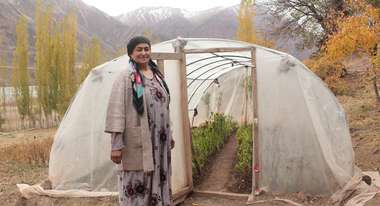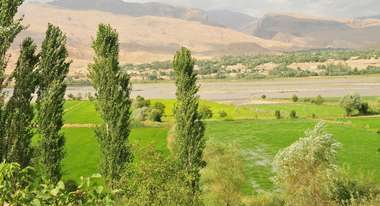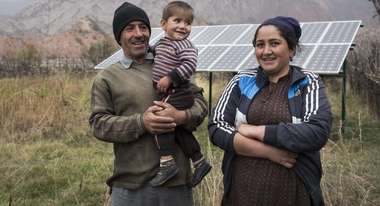Renewable energies protect people and the environment
Tajikistan is particularly affected by the consequences of climate change and is increasingly hit by natural disasters. With a new project supported by Welthungerhilfe that promotes renewable energies and energy efficiency new ways open up now for the rural population in remote regions.
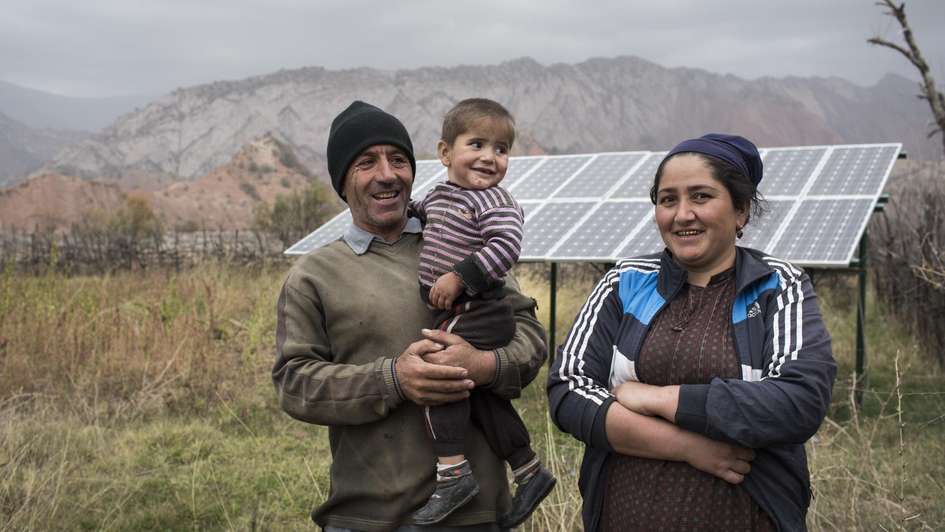
What would you do, if in deep winter in the high mountains you could barely find any wood to heat the oven and cooking stove? And if in the summer heat you could hardly water the dry soils sufficiently? If your existence was constantly threatened by snow and stone avalanches or mud flows?
In Tajikistan, a country particularly affected by the effects of climate change and prone to natural disasters, the rural population is constantly confronted with these problems. With a new project supported by Welthungerhilfe that promotes renewable energies and energy efficiency new ways open up now for the rural population in remote regions.
Natural disasters are a growing threat
In the high mountain areas of Tajikistan, people lead a hard life under harsh climatic conditions. Natural disasters such as mudslides, droughts, floods and landslides threaten people and the environment. The legacy of the Soviet Union with its unsustainable and technology-dependent cultivation methods and the impoverishment of the population since the civil war and the economic breakdown make matters worse. The low yields of few available fields are barely sufficient for survival, which is why 30% of the population suffers from seasonal malnutrition. The already dwindling forest cover, indispensable for the maintenance of soils, is being burned in inefficient furnaces due to lack of alternatives during the icy winter months.
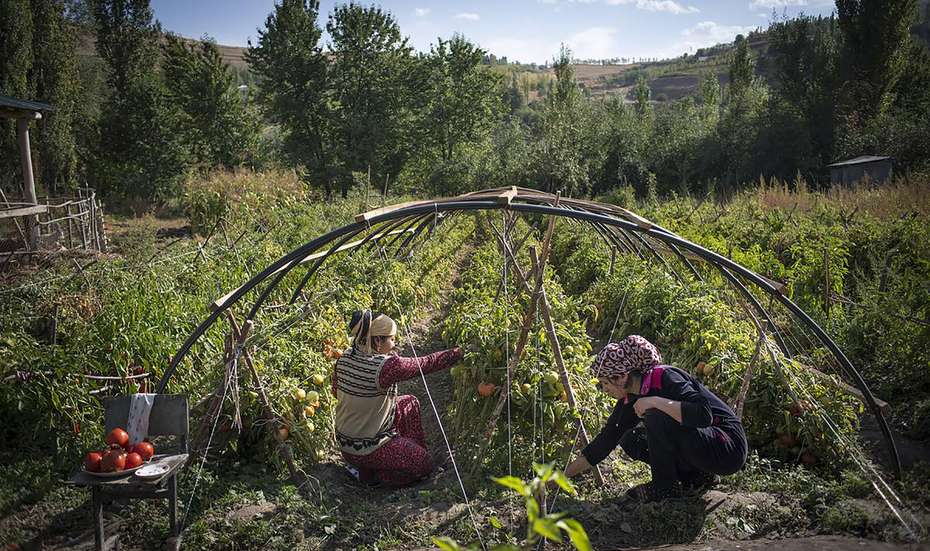
Preserve the natural environment with full energy
From now on, people will not only be able to make better use of the available energies but also to preserve them for the future. Since the beginning of 2017, Welthungerhilfe has been helping 32,000 residents in the rural areas of Central Tajikistan to build more energy-efficient ovens and cooking stoves, to insulate their homes and to use solar and water energy.
Since then, hundreds of households have significantly reduced their fuel consumption and have been proven to suffer less from respiratory illnesses, as cooking on open fire belongs to the past. Welthungerhilfe, together with its local partners, offers continuing education in crafts and modern technologies in order to disseminate knowledge about energy-efficient measures.
In the framework of this project, ten innovative small farmer cooperatives converse their operational management towards an adapted, resource-saving agriculture. In the long term, this proves to be more resistant to climatic changes. With the newly acquired knowledge about energy-saving measures and renewable energies now people can look with confidence into the future.
- 20 photovoltaic plants that power water pumps and 5 small hydropower plants are being built in the mountain communities. They provide electricity that replaces the traditional energy sources of wood, coal and diesel.
- The forest cover is reforested in 10 communities.
- Energy-efficient, wood-saving ovens and cooking stoves reduce energy consumption by 30%.
- Access to energy-efficient technology is subsidized for 600 very vulnerable families.
- Ten agricultural cooperatives focus on sustainable management and serve as a showcase and educational tool for hundreds of small farmers in the region.
- Efficiency measures such as house insulation are being implemented in 130 public institutions such as schools and hospitals.
- The emission of carbon dioxide is reduced by about 1,800 tons per year.
- The number of respiratory diseases decreases measurably due to less smoke.
(Project: TJK 1103)





